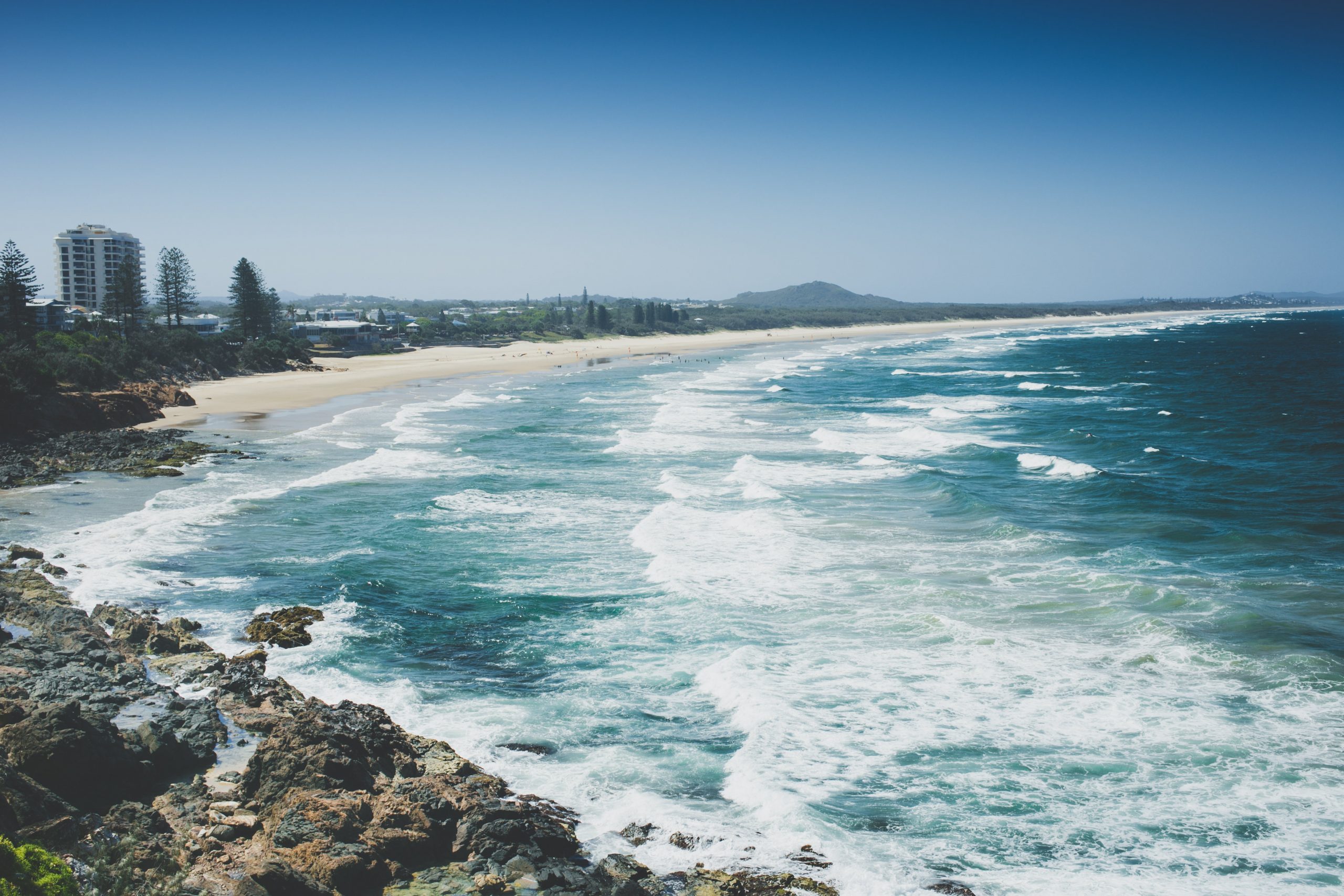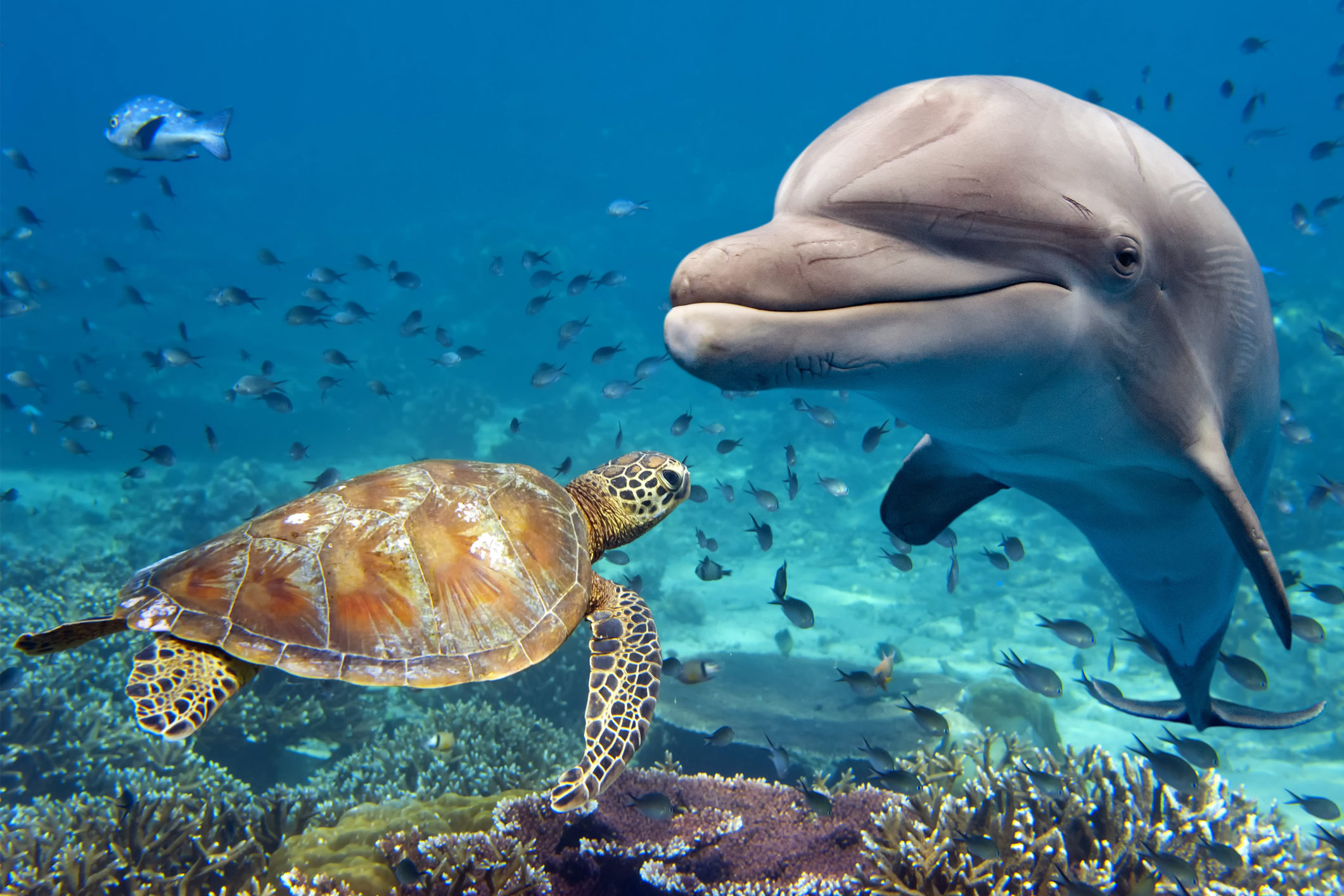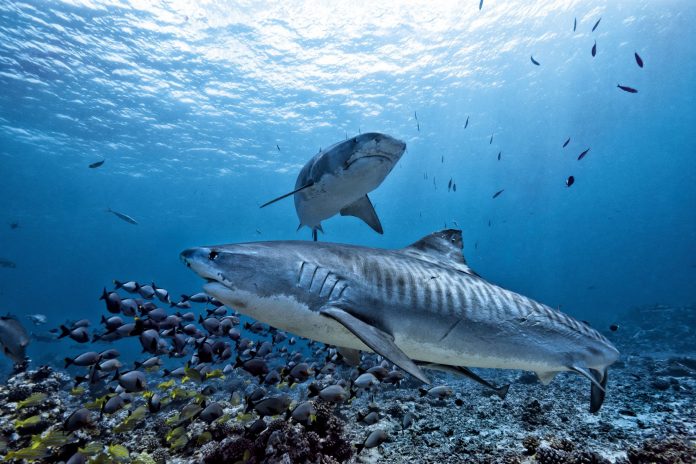A prominent animal welfare group has condemned Queensland’s Shark Control Program, after dozens of non-targeted animals died after being caught by nets and drumlines off Sunshine Coast beaches last year.
A total of 113 creatures were inadvertently caught, and 95 of those were listed as ‘dead’ on the Fisheries Queensland database.
The fatal toll included 72 non-targeted sharks, two dolphins, two turtles and 19 others, which were mostly a variety of rays.
Meanwhile, 48 targeted sharks were caught, with 32 listed as dead.
It comes after footage surfaced in earlier this month that showed Shark Control Program contractors stabbing a tiger shark caught on a drumline off the Sunshine Coast.
Fisheries Queensland said it was working on protecting beachgoers and mimimising the program’s impacts on non-targeted species.
There are 22 shark nets and 60 drumlines between Noosa and Caloundra, while studies are underway on electronic warning devices and drones.

Humane Society International Australia marine biologist and spokesperson Lawrence Chlebeck said traditional shark control methods like nets and drumlines were essentially outdated.
“The lethal component of the Shark Control Program is ineffective at reducing the risk of shark bite, provides nothing more than a false sense of security and kills marine wildlife,” he said.
“Non-lethal measures such as drone surveillance, personal shark deterrents, education and catch-alert drumlines are all far more effective at reducing the risk.
“Increasing investment in new, non-lethal technologies is better for the marine environment, wildlife and public safety.”
Do you have an opinion to share? Submit a Letter to the Editor at Sunshine Coast News via news@sunshinecoastnews.com.au. You must include your name and suburb.
Mr Chelbeck highlighted the number of animals that were inadvertently caught during the past two decades.
“According to DAF catch statistics, 2527 animals have been caught in nets and drumlines off the Sunshine Coast since 2001,” he said.
“Seven-hundred-and-seventy-four of these were target species of shark, while the remaining 1753 were unintended bycatch. This includes 124 turtles, 141 whales and dolphins, and nine dugongs (plus non-target shark species).”
The footage that circulated in early January appeared to show contractors stabbing a tiger shark in the brain after it was caught on a drumline off Kings Beach in December.
Tiger sharks are a targeted species, along with bull sharks, white sharks, blacktip sharks, dusky whalers and grey reef sharks, because of the threat they could pose to beachgoers.
Mr Chelbeck lambasted the incident and said the event was a common occurrence.
“The cruelty captured in the footage is sadly standard operating procedure, yet repeated stabbing and gutting is certainly inhumane,” he said.
“First and foremost, no lethal program should be allowed to operate.
“A stab to the brain, known as ‘pithing’, is regular practice in the Shark Control Program.
“That this is standard practice lays bare the cruelty of the program.”
He said HSI was “strongly opposed” to the program.
“The lethal component of the program must be ended, and non-lethal, more effective alternatives such as drone surveillance, personal shark deterrents and education must be used in place.”
A Department of Agriculture and Fisheries spokesperson confirmed a 2.8m tiger shark was found alive on a drumline off Kings Beach, before it was “euthanised”.
“Tiger sharks are a target species of the Shark Control Program and are considered dangerous,” they said.
“The shark was euthanised in accordance with program protocols.
“The tiger shark was a male and therefore not carrying pups. Analysis of the footage confirms the smaller fish present were likely to be cobia.
“The euthanised shark was taken approximately 3km out to sea for disposal.”
The DAF was asked by SCN how many of the caught sharks with ‘dead’ fates in 2023 were euthanised, what instruments were used by contractors in the incident off Kings Beach and whether the occurrence was common practice, but was yet to receive a response.
Mr Chelbeck said the statistics on caught marine life and their fates was not clear.
“The online database only lists whether an animal has been released alive or is dead,” he said.

A Fisheries Queensland spokesperson said the government was determined to lessen the effects of control measures on non-targeted shark species and other sea life, and several initiatives were being implemented and/or trialled to achieve this.
“The Shark Control Program is dedicated to minimising impacts of nets and drumlines on other marine animals,” they said.
“Strategies to achieve this include:
- using shark control contractors to regularly check nets and drumlines for captured animals, and releasing non-target shark species and other animals alive whenever possible;
- using drumlines instead of nets where possible, as marine mammals are less likely to be entangled in drumlines;
- using electronic warning devices (pingers) to deter whales and dolphins from swimming near nets and drumlines;
- using alternative baits or apparatus configurations to reduce the incidences of dolphins and turtles being caught on drumlines or in nets; and
- conducting a comparative trial of circle hooks and J hooks to assess the effect on catches of target sharks, non-target sharks and other marine animals.”
The spokesperson said trialling drones and catch-alert drumlines were priorities.
“The SharkSmart drone trial started in September 2020 in partnership with Surf Life Saving Queensland,” they said.
“The drones are a valuable tool used for spotting sharks and other marine hazards such as rip currents at some beaches.
“The catch-alert drumline trial (sometimes called SMART drumlines) began in September 2021 at four beaches along the Capricorn Coast in the Great Barrier Reef Marine Park.
“No major changes will be made to the program until these trials have been completed and analysed, and it is determined whether they are effective for Queensland conditions.”
The spokesperson also said there shark population studies underway.
“The department is working with researchers to estimate the population size and distribution of key shark species through reviewing shark catch data, tagging and tracking information, genetics and other available science. No results are currently available,” they said.
Like stories that inform, connect and celebrate the Sunshine Coast? So do we. Join an independent local news revolution by subscribing to our FREE daily news feed at the bottom of this article.





